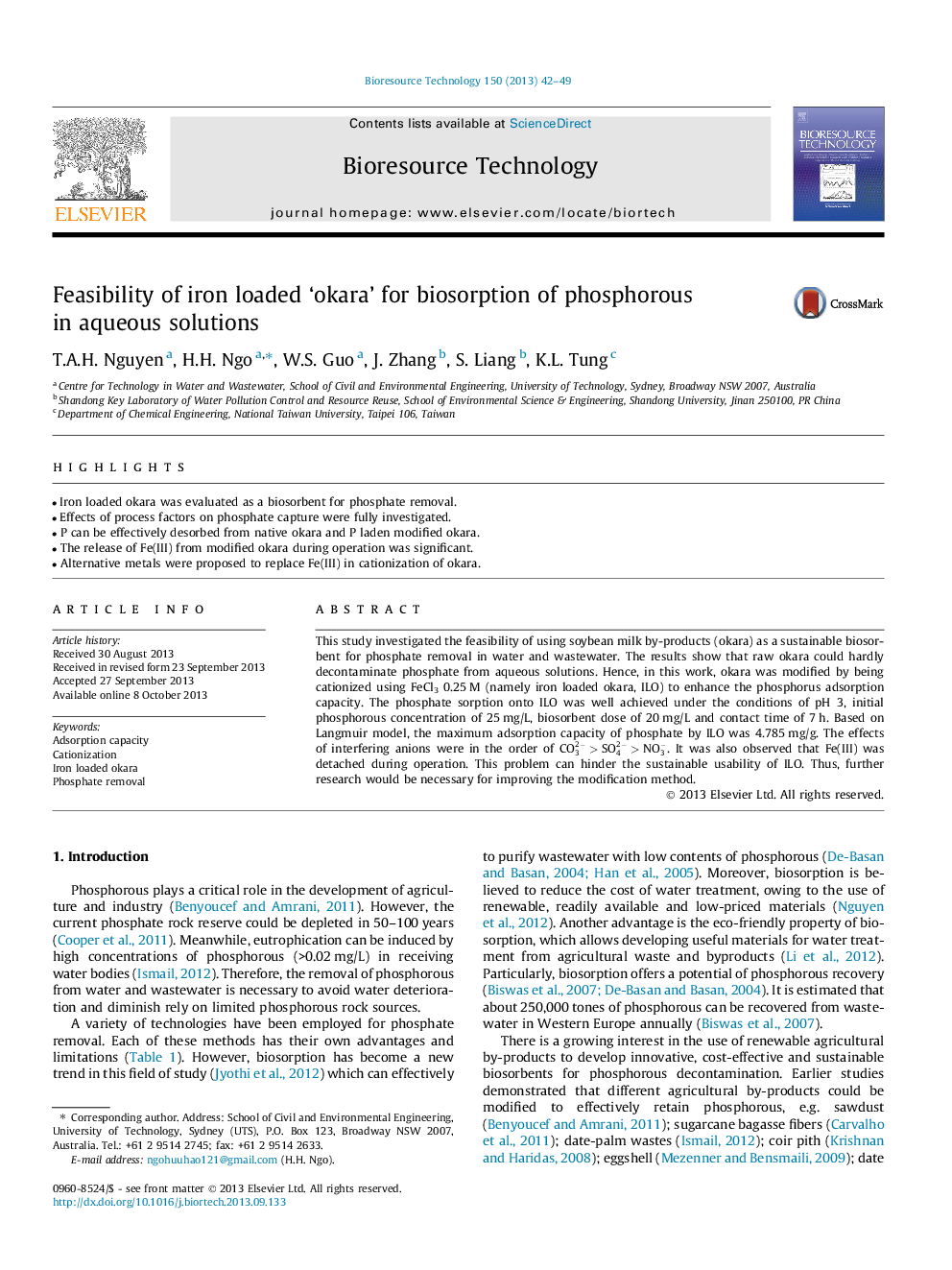| Article ID | Journal | Published Year | Pages | File Type |
|---|---|---|---|---|
| 7079158 | Bioresource Technology | 2013 | 8 Pages |
Abstract
This study investigated the feasibility of using soybean milk by-products (okara) as a sustainable biosorbent for phosphate removal in water and wastewater. The results show that raw okara could hardly decontaminate phosphate from aqueous solutions. Hence, in this work, okara was modified by being cationized using FeCl3 0.25Â M (namely iron loaded okara, ILO) to enhance the phosphorus adsorption capacity. The phosphate sorption onto ILO was well achieved under the conditions of pH 3, initial phosphorous concentration of 25Â mg/L, biosorbent dose of 20Â mg/L and contact time of 7Â h. Based on Langmuir model, the maximum adsorption capacity of phosphate by ILO was 4.785Â mg/g. The effects of interfering anions were in the order of CO32->SO42->NO3-. It was also observed that Fe(III) was detached during operation. This problem can hinder the sustainable usability of ILO. Thus, further research would be necessary for improving the modification method.
Related Topics
Physical Sciences and Engineering
Chemical Engineering
Process Chemistry and Technology
Authors
T.A.H. Nguyen, H.H. Ngo, W.S. Guo, J. Zhang, S. Liang, K.L. Tung,
